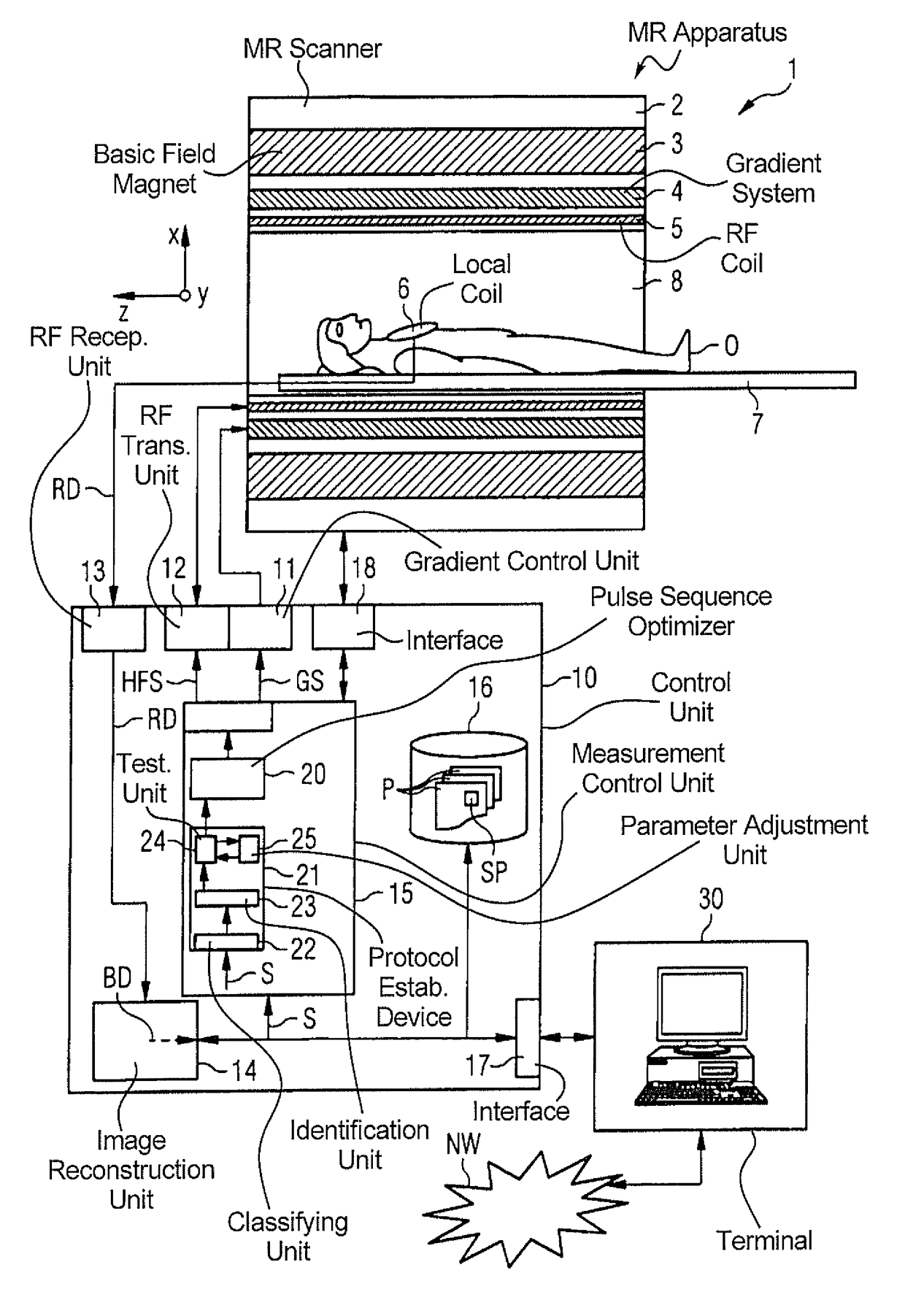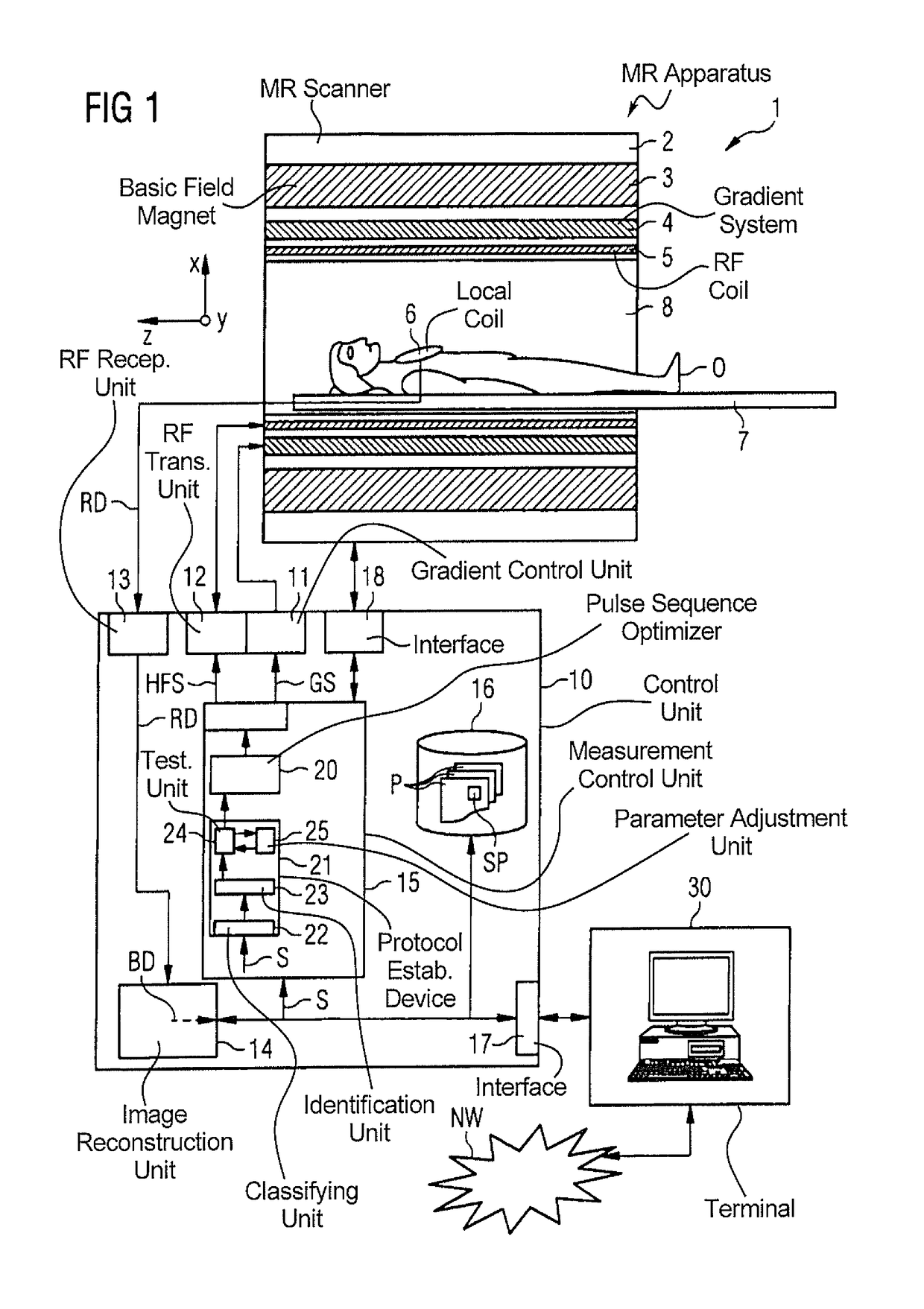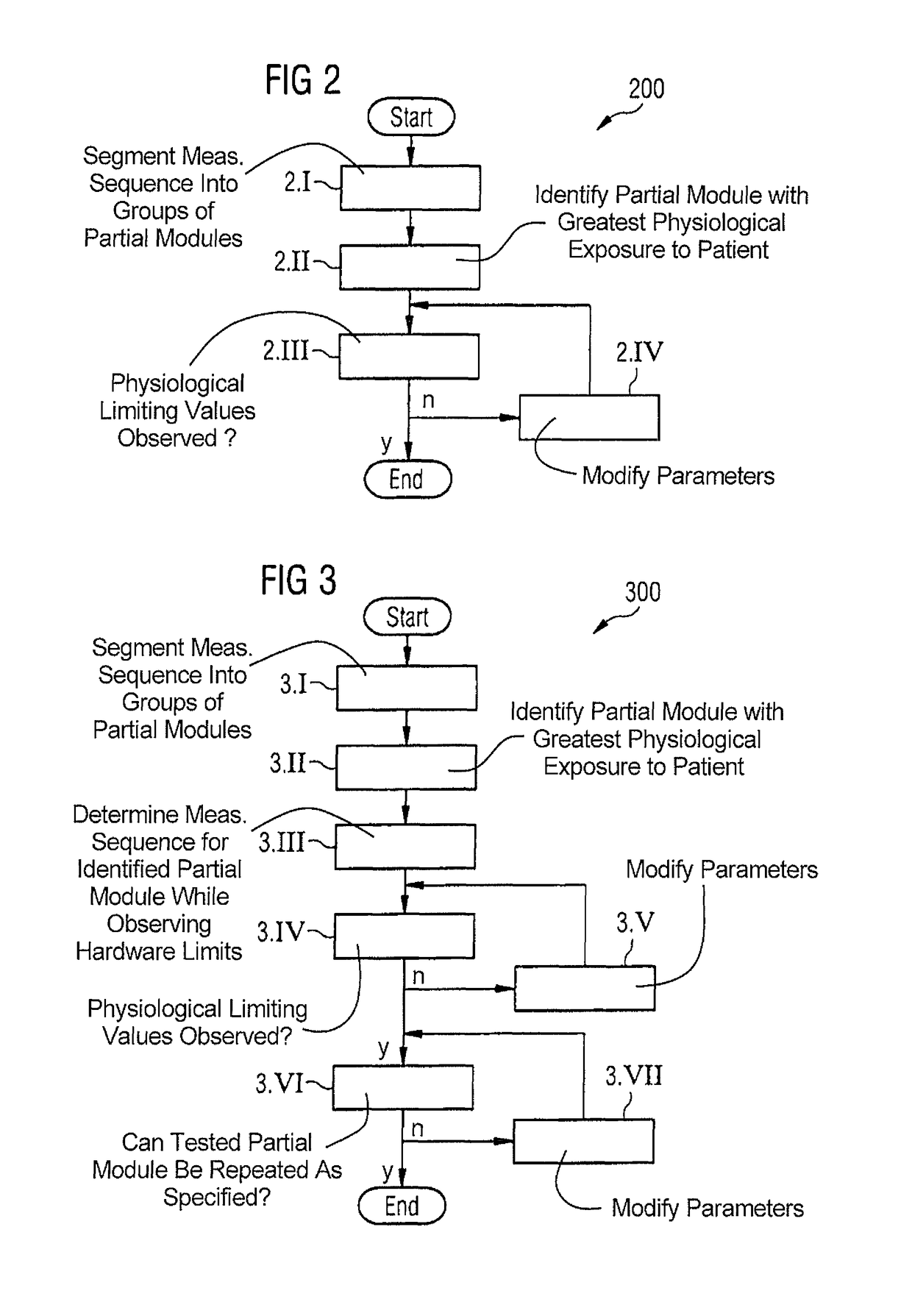Method and device for optimizing magnetic resonance system operating sequences with respect to physiological limiting values
a magnetic resonance system and operating sequence technology, applied in the direction of magnetic variable regulation, measurement using nmr, instruments, etc., can solve the problems of limited selection of protocol parameters, physiological limit setting boundary, limited utilization of rf transmission system capability, etc., to achieve effective and user-friendly effects
- Summary
- Abstract
- Description
- Claims
- Application Information
AI Technical Summary
Benefits of technology
Problems solved by technology
Method used
Image
Examples
Embodiment Construction
[0039]FIG. 1 shows a block diagram of a magnetic resonance MR apparatus 1 designed according to the invention. It includes, first, the actual magnetic resonance scanner 2 with an examination receptacle or patient tunnel 8 located therein. A bed 7 can be slid into the patient tunnel 8, such that a patient O or test subject lying thereon can be disposed during an investigation in a specific position inside the magnetic resonance scanner 2 relative to the magnet system and radio-frequency system arranged therein, or can be moved between various positions during a measurement.
[0040]Basic components of the magnetic resonance scanner 2 are a basic field magnet 3, a gradient system 4 with magnetic field gradient coils to generate magnetic field gradients in the x-, y- and z-directions, in addition to a whole-body radio-frequency (RF) coil 5. The magnetic field gradient coils in the x-, y- and z-directions can be controlled independently of one another such that, through a predetermined com...
PUM
 Login to View More
Login to View More Abstract
Description
Claims
Application Information
 Login to View More
Login to View More - R&D
- Intellectual Property
- Life Sciences
- Materials
- Tech Scout
- Unparalleled Data Quality
- Higher Quality Content
- 60% Fewer Hallucinations
Browse by: Latest US Patents, China's latest patents, Technical Efficacy Thesaurus, Application Domain, Technology Topic, Popular Technical Reports.
© 2025 PatSnap. All rights reserved.Legal|Privacy policy|Modern Slavery Act Transparency Statement|Sitemap|About US| Contact US: help@patsnap.com



